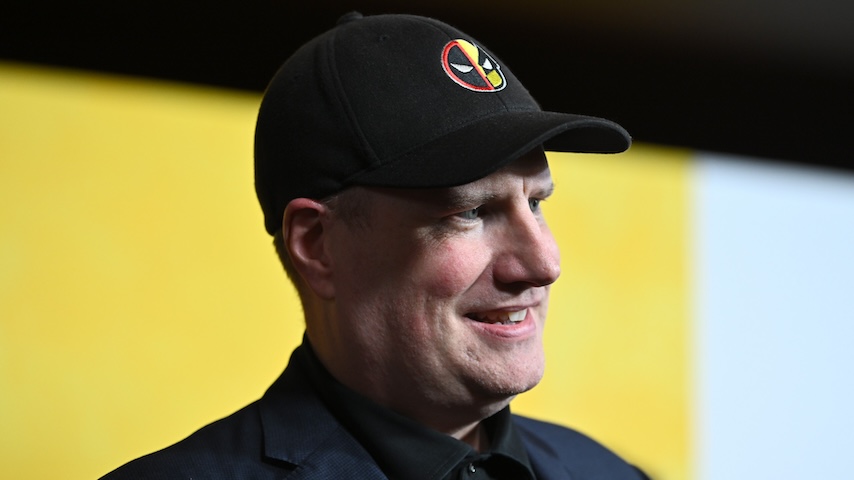Kevin Feige, who made a lot of money on sequels, isn’t cynical about sequels
Marvel Studios boss Kevin Feige defends sequels from cynics and eye-rollers ahead of San Diego Comic Con
Photo by: Roy Rochlin/Getty Images
Kevin Feige is doing the media rounds for Deadpool & Wolverine, which also means a round of defending Marvel Studios’ honor. Superhero fatigue doesn’t exist! We’re fixing the oversaturation problem! The X-Men are coming! Now, ahead of the studio’s appearance at San Diego Comic-Con, here’s another soundbite for the books: sequel haters are cynics. Which, frankly, makes sense as the rhetorical position of a man whose bills are paid by an avalanche of blockbuster sequels.
Speaking with Variety, Feige said he “always like[s] the world-building and being able to return to characters” in his favorite films, like the Star Wars series. “I was always excited for sequels. I was never cynical or rolling my eyes the way people still do today for some reason, even though there’ve been sequels since the ’30s and they’re an absolute pillar of the industry,” he said. “To me, those were always what I enjoyed most, the notion that something I loved was returning and it would expand on what I loved about it.”
Oh, the heavy work that “for some reason” is doing. It suggests the same defensive streak that has Marvel stars beefing with Martin Scorsese. Everybody likes sequels; sequels rake in loads and loads of cash and top the box office charts. It’s not controversial to like sequels (especially if your career is built on them). It is actually, like the Marvel Cinematic Universe, the dominant cultural position. Feige’s defense of sequels feels like another symptom of false underdog syndrome. There’s some sensitivity there about these perceived pretentious critics whose hearts aren’t pure enough to embrace the joy of sequels.
But the issue that those critics have is that this pillar of the industry has become a little too load bearing: Hollywood has become more risk-averse, which means a greater reliance on sequels (and remakes, and other established IP strategies), which means training audiences out of expecting original storytelling on screen. Maybe it’s cynical, but it does seem like a fair observation to make that a focus on sequels—not for the sake of the storytelling, but for the benefits of the business—is choking out the opportunities for other kinds of movies. It’s definitely cynical to point out that the guy championing sequels makes a lot of money off sequels, but that doesn’t mean it’s not worth noting.
There’s no doubt that, in addition to sequels being necessary to his livelihood, Feige genuinely means it when he says he enjoys a certain kind of franchise storytelling. Elsewhere in the interview, he admitted to watching Phantom Menace 13 times in theaters, so he’s not new to this, he’s true to this. And, to his credit, he’s going to continue to be true to the vision for Marvel that he pioneered more than a decade ago, back when the studio brass were saying that “The Avengers was too big of a concept to do in live action. Maybe we could do an animated film someday,” as he recalled to Variety. “I always love being in the weeds. And the more [responsibility] you have, the less time you have to spend in the weeds. So, we’ve navigated that; I think that’s clear,” he said. “We’ve talked about that over the last couple of years, to scale back so that we all have more time to do what we really love, which is be in the weeds.”